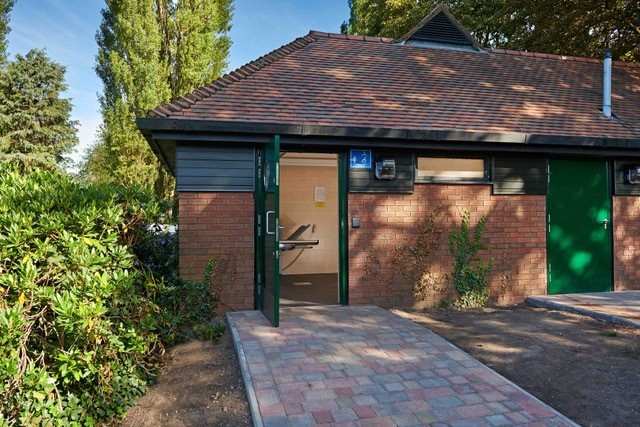

|
Chris Shaw
Editor |
| Home> | WASHROOM HYGIENE | >General Washroom Hygiene | >Call to improve public toilet provision |
Call to improve public toilet provision
23 September 2019
Designers and developers of public spaces and venues are being urged to go to the toilet when planning new build or refurbishment projects.

The urge is the result of a new report, which claims the nation’s health, mobility and equality is being threatened by lack of toilet provision away from home.
The headline of the Taking the P*** survey, by the Royal Society for Public Health (RSPH), is that the provision of public toilets should be made compulsory: fewer than 4,500 now exist across the UK.
The survey is published just weeks after the Government announced consultation on making assisted accessible toilets aka Changing Places obligatory.
The RSPH findings are supported by Closomat, a leading British provider of enabling toilet solutions at home and away and instrumental in delivery of many of the 1500 or so Changing Places assisted accessible toilets across the country.
“Numerous reports have been done already demonstrating that people make a conscious decision NOT to go places where they believe they cannot find a suitable toilet,” says Robin Tuffley, Closomat marketing manager. “Locations that DO have good toilet provision find more people visit, they stay longer, and spend more money. That applies across the spectrum of places we go - from town centres to visitor attractions.
“The RSPH survey found that 70% of people wanted more, better toilets in supermarkets; almost as many listed cafes, restaurants, bars. That mirrors our experience in accessible toilet provision. We go to the toilet on average eight times a day, so the chances are that, if and when we are out and about, we WILL need the toilet. All involved in the construction process are essential to answering the call, and meeting the need, to design, build and operate more toilets for the public.”
Building regulations do require provision of toilet facilities in occupied buildings, and state that, if nothing else can be provided (because of space etc.), it should at least be a wheelchair-accessible unisex WC.
Closomat is described as the leading provider of assisted accessible toilets. Its website www.closomat.co.uk provides a raft of support information including white papers, CAD blocks, video and case studies. The company offers a fully CDM compliant project management service, to assess and advise on the design for an assisted accessible toilet (such as a Changing Places or Space to Change). They also supply, install, commission and subsequently service and maintain the equipment therein.
- Best practice for accessible toilet facilities
- Don't bar 20% of potential customers
- Sanitary best practice
- Toilets help to transform seafront
- Ten tips to give customers a useable & accessible toilet
- Council creates exemplar toilet facility
- Changing Places: At your service
- Sanitary best practice
- Hygienic shower toilets
- National museum enhances accessibility





















